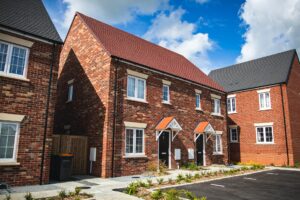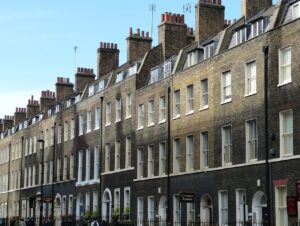What is affordable housing? In recent years this topic has been a popular discussion for politicians and economists, but to many of us, it remains a buzzword that confuses more than it explains.
What is the definition of affordable housing in the UK?
Most definitions of “affordable housing” place an emphasis on the relationship between household income and housing spending. Housing should cost no more than 35% of your household income after taxes and benefits, according to the housing charity Shelter.
The reality is that being able to afford a property means more than renting or getting a mortgage. Maintenance, bills and life events are not taken into consideration when determining these figures. We at Your Mortgage Group have years of experience in advising people on their first time purchase and how to get the best price for their home. Here we have compiled a brief summary of what affordable housing may mean to you.
Why do we need affordable housing?
The most important factor affecting affordable housing is simply population. Quite simply not enough housing is being built to house the ever-growing population which since 2000 has increased by more than 10%, and these people need housing.
As to what specific monetary amount equals affordable housing, it’s a little bit unclear. In theory, an affordable house should cost 20% less than the market price, so for example, a £200,000 house should cost £160,000. In reality, this often means that the homes are simply a lower price than the surrounding houses, but are still far from affordable for most individuals trying to save.
What kind of low-cost housing are available?
Social housing projects
Many of us will be aware of social housing or council housing, but may not be aware of what it specifically means.
Social housing projects are generally provided by the local council or housing authority and are offered as a cheaper alternative to privately renting. Council houses are a form of public housing built by the government for local residents to buy cheaper homes from the council.
People in the UK are given dwellings through social housing projects, which are usually less expensive to rent than private property. Social housing plans typically offer long-term tenancies and, as a result, stability. This is seen as one of the most important advantages of social housing.
Shared ownership
Shared ownership, as the name suggests is a process where you buy a percentage (usually 25%) of the homeland pay rent on the rest, you can then slowly gain a greater share of the property through a process known as staircasing.
This is not ideal for property ownership as, in the long run, the money saved will actually be minimal. However, it can certainly be effective in certain situations.
Starter homes
Starter homes were an initiative that began in 2016 by the government to build 200,000 new homes. However, as of this year effectively none have been built.
The idea was to benefit young people the most, with the homes being sold at a 40% discount on the market price. However, while there was a 2.3 Billion pound budget for the project initially, as of this year there does not seem to be any money allocated to it according to auditors.
Rent to buy
Rent to buy is a scheme whereby local housing associations offer rented property at a much lower rate (usually around 20% of the market value) allowing the renter to save up for a potential property purchase in the future. This is usually offered to younger people with a good credit score.
London living rent
This is a process exclusive to London where a tenant is given a 3-year contract to rent a property in the capital with the idea being that they will be able to save over this period and enter into a shared ownership deal at some point during the tenancy.
Additional options
There are also schemes such as guarantor mortgages where a parent or a close family member is able to take on some of the financial liability out of the purchase. Generally, this will mean putting up their home or other high-value assets as a security in the case of the mortgage buy not being able to meet payments.
There are also 95% mortgages where you only put down 5% of the deposit required and take the remaining 95% of the value of the house out as a loan. These can be very difficult loans to get but the government has announced that it will launch a 95% loan scheme later this year.
What does this mean for a first-time buyer?
As a first-time buyer or someone looking into making your first property purchase you will likely be a little nervous. Affordable housing is a complex subject and when looking into your first mortgage there are literally thousands of different products and services to choose from.
We at Your Mortage Group are experts in our field, and we are perfectly placed to help you through your first property purchase in the southeast. We will guide you through the entire process of making an offer on a property, from start to finish, as well as advising you on what the best option for you would be, tailored to your circumstance. Take a look at our first-time buyer’s page and the FAQ, if you still have questions get in touch with us here.



